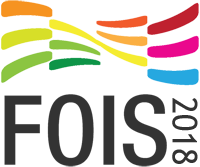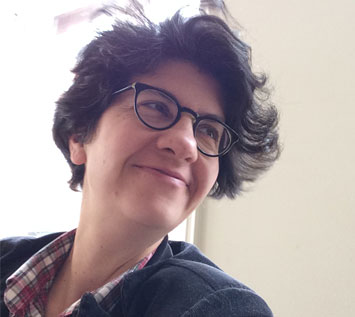 Ontologies for artificial minds, by Alessandro Oltramari, Bosch Research and Technology Center
Ontologies for artificial minds, by Alessandro Oltramari, Bosch Research and Technology Center
Ontologists build formal models to understand the structure of reality. The fun starts – and I had a lot of it back in the PhD days! – when Formal Ontology is applied to understand the structure of what we indisputably use to understand reality itself: the mind. Philosophers have spent lifetimes hovering over this conundrum, I stopped more than a decade ago: but, fast-forward to the present, I’ve been busy with a not-so-distant, and yet more mundane, problem: building ontologies for AI.
My work focuses on engineering ontologies that can be integrated with the artificial minds’ “substrata”, i.e. deep and shallow neural networks, and with the processes these bring about, all of which can be pretty much boiled down to pattern recognition.
In this talk I will describe how ontologies can be effectively used in data-driven AI frameworks: I will argue that, in order to progress towards Explainable AI, it is necessary to design hybrid systems that integrate human-accessible machine representations with neural machines.
Rather than concocting a philosophical theory, I will build my argument by illustrating core results from some of the projects I’ve been involved in, at Carnegie Mellon first and, more recently, at Bosch.
Alessandro Oltramari is a Research Scientist and Project Lead at the Bosch Research and Technology Center in Pittsburgh (USA), working on hybrid AI systems in the context of Internet of Things. Prior to this position, he was a Research Associate at Carnegie Mellon University (2010-2016), where he specialized in the integration between knowledge based systems and cognitive architectures. His work at CMU – funded by DARPA, NSF, ARL among the others – spanned from machine vision to robot navigation, occasionally arousing interest in the press (CNET, Forbes). Alessandro received his Ph.D. in Cognitive Science from the University of Trento (Italy), in co-tutorship with the Institute for Cognitive Science and Technology of the Italian National Research Council (ISTC-CNR). His interest in ontologies stems from a decade-long collaboration (2000-2010) with the Laboratory for Applied Ontology (LOA), headed by Nicola Guarino. Alessandro was Visiting Research Associate at Princeton University in 2005 and 2006, where he worked with Christiane Fellbaum and George A. Miller on restructuring the computational lexicon WordNet using formal ontology analysis. The author of about 70 scientific articles, 10 book chapters, and editor of 3 books, he is member of AAAI, IAOA and regularly serves in the program committee of international conferences like ISWC, ESWC, LREC and ACL.
Alessandro has been living in Pittsburgh since 2010, with his wife Laura
and his rescued dog Lady.
https://www.linkedin.com/in/alessandrooltramari

 State-centric methodology of ontology engineering
State-centric methodology of ontology engineering
 Semantic Web techniques for the study of large-scale philosophical corpora
Semantic Web techniques for the study of large-scale philosophical corpora Ontologies for artificial minds, by Alessandro Oltramari, Bosch Research and Technology Center
Ontologies for artificial minds, by Alessandro Oltramari, Bosch Research and Technology Center